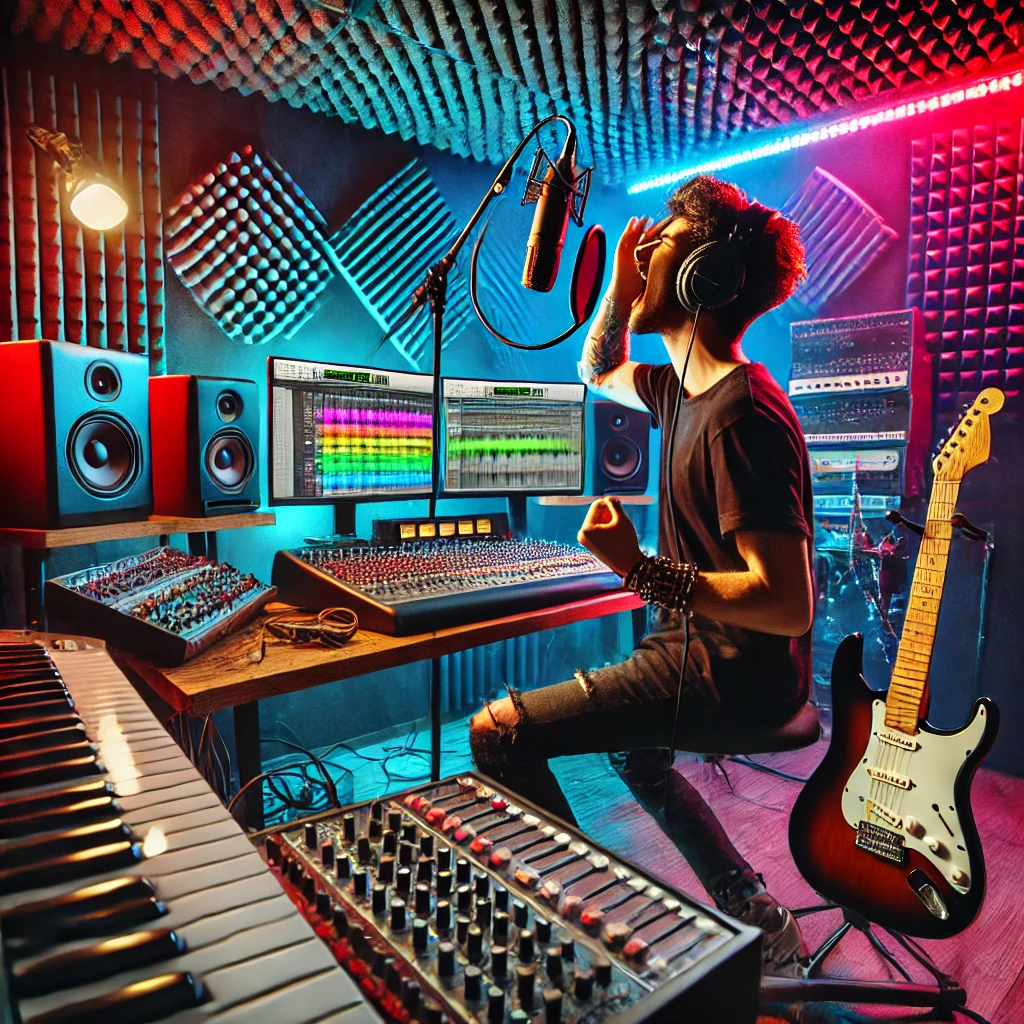The future of the music industry is shaped by several key trends and developments. Here are some factors likely to influence its direction:

1. Streaming Dominance and Subscription Models
Streaming services like Spotify, Apple Music, and YouTube Music have redefined how people consume music, and this trend is only expected to continue. As more artists release music directly to streaming platforms, the future could see greater competition among services and changes in the way artists are compensated. There’s also potential for higher-definition streaming or spatial audio becoming more popular.
2. Artificial Intelligence (AI) and Music Creation
AI tools are becoming a powerful force in music production, composition, and even mixing. AI can help artists create music faster and more affordably, while also allowing producers to experiment with new sounds. However, AI-generated music raises questions about authenticity, originality, and copyright, and the balance between human creativity and machine assistance will continue to be a central debate.
3. Direct-to-Fan Platforms and NFTs
Many artists are bypassing traditional record labels and using direct-to-fan platforms, such as Patreon, Bandcamp, and even NFTs (non-fungible tokens), to sell exclusive content. NFTs, in particular, could become a new revenue stream, allowing artists to sell unique digital items, such as limited-edition albums, artwork, or concert experiences, directly to their audience.
4. Globalization of Music
Thanks to streaming platforms and social media, global music trends are breaking down geographic barriers. Genres like K-pop, Latin reggaeton, and Afrobeats are gaining worldwide popularity. The music industry of the future will likely be even more international, with artists collaborating across countries and cultures, and audiences from different parts of the world discovering new music together.
5. Virtual Concerts and the Metaverse
Virtual concerts surged in popularity during the pandemic, with artists holding performances in online spaces or through platforms like Fortnite or Roblox. As the metaverse evolves, the potential for immersive virtual music experiences could become a mainstay of the industry, with fans attending concerts, buying virtual merchandise, and interacting with artists in new digital realms.
6. Independent Artists and Decentralization
More artists are going independent, leveraging technology and platforms to maintain control over their careers without needing major labels. This decentralization could shift the power dynamics of the industry, allowing artists to retain more profits from their work and engage directly with their fan bases.
7. Social Media’s Role in Music Discovery
TikTok and Instagram have become major tools for music discovery, with viral challenges and short-form content driving songs to the top of the charts. The music industry will increasingly rely on social media for promotion, with artists tailoring content to engage audiences directly and drive streams.
8. Sustainability and Ethical Practices
As environmental and social awareness grows, the industry is expected to focus more on sustainability. From reducing the carbon footprint of tours to using eco-friendly materials for physical music production (like vinyl or CDs), the industry may adopt greener practices. Ethical issues related to fair compensation for artists, diversity, and inclusion will also be central.
9. Blockchain and Royalty Distribution
Blockchain technology offers new ways to handle music rights and royalty payments. Smart contracts and decentralized ledger systems could ensure artists are paid more quickly and transparently for their work. This technology could reduce the role of intermediaries and make it easier for artists to monetize their music directly.
10. Data-Driven Insights
The role of data in understanding audience behavior will continue to expand. Streaming platforms, social media, and AI tools provide granular data on listener preferences, enabling more personalized music experiences. Artists and labels can use this information to craft marketing strategies, tour schedules, and even songs that align more closely with fan expectations.
The music industry is poised to become even more dynamic, digital, and direct, with technological advancements offering new ways to create, distribute, and experience music. However, it will need to address challenges like artist compensation, AI ethics, and maintaining the personal connection between artists and fans.
